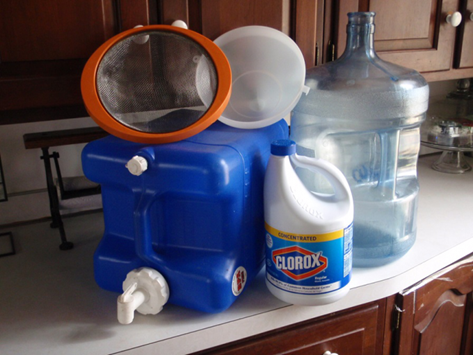
Photo by Tim MacWelch
There are a variety of ways to tackle water filtration in an off-grid scenario.
Waterborne pathogenic organisms have been, and will continue to be, a huge threat to the safety and health of anyone who is providing their own water supply, especially from surface water sources. Dysentery and other water related ailments have been killing kings and commoners alike for millennia, and it’s still happening right now. The World Health Organization estimates that water-borne pathogens kill as many as 3.4 million people a year worldwide.
In a crisis setting, you may not be using your normal source of water. This makes filtration an even more important issue. So whether your back-up water supply comes off your roof, from a spring, or out of a tank – consider using this equipment so that you and your family don’t fall victim to the global epidemic of dirty water.
1. Carbon Filters
These are the elements in your household “pitcher filters,” which remove chlorine, lead, iron, copper, and other not-so-tasty elements. You can also find these filter elements in the plumbing lines of OTG homes around the world.
2. Reverse Osmosis Filters
The best of the bunch in the opinion of some, reverse osmosis involves pushing water through a membrane. Particles and organisms larger than a water molecule just can’t fit through the pores. This is a fine filter for screening out pathogens, but it’s best used on already clear source water. This filter can clog the fastest, and it may also require “normal range” water pressure, something you may not have on a gravity fed system.
3. Sand Filters
These are exactly what they sound like: vessels of sand that catch and hold particulates and pathogens. These are an excellent “first step” in your system, especially if you occasionally have sediment in your water which would hopelessly clog a finer filter.
4. Ceramic Filters
I’d trust my life with these. The best ceramic filters have silver imbedded in them. The ceramic screens out the larger pathogens, and the silver kills the little ones (like viruses).
Start now to make sure you are staying prepared.
Via: outdoorlife




 Follow
Follow
Leave a Reply